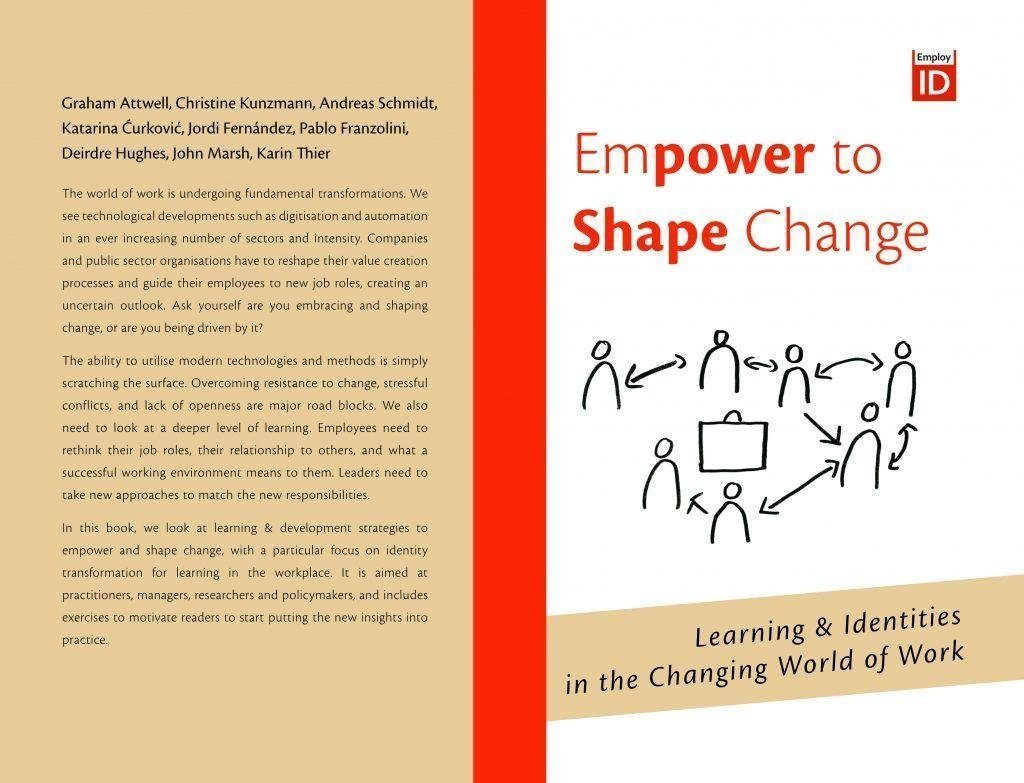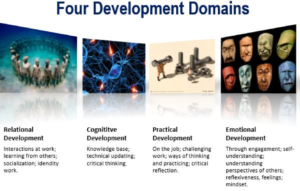
As regular readers of this blog will know, Pontydysgu were members of a consortium in a project called EmployID, funded by the European Commission. The project focused on changing work identities in Public Employment services and how technology could be used to support Continuing Professional Development, including both formal learning and informal learning.
All too often such project produce a series of fairly unintelligible reports before they face away. We were determined not to replicate this pattern. Instead of producing a series of annual reports for the EU based on different project work packages, for three years of the project we produced an an unified annual report in the form of an ebook.
And the EmployId Consultancy Network , formed out of the project has now produced a short book, designed for individuals and organisations interested in organisational transformations, changing identities and learning.
The EmployId Consultancy Network is a network of researchers, practitioners and trainers offering tailored services for solutions around facilitating staff development with the focus on professional identity transformation (among them are myself, Luis Manuel Artiles Martinez, Pablo Franzolini, Deirdre Hughes, Christine Kunzmann, John Marsh, Andreas P. Schmidt, Jordi Fernández Vélez, Ranko Markus, Karin Trier, Katarina Ćurković and Adrijana Derossi).
This is what the book is about:
The world of work is undergoing fundamental transformations.
For example, nurses have mostly chosen their job because they want to care for their patients, but their work now involves, to a large degree, computer-based documentation and quality assurance measures. Practitioners in public employment services turn from administrating unemployment benefits into coaches for their clients. And engineers need to make sense of large scale sensor data and assess the opportunities of artificial intelligence techniques for their companies’ future services.We see technological developments such as digitization and automation in an ever increasing number of sectors and intensity.
Are you embracing and shaping the change or are you being driven by it?
Companies and public sector organisations have to reshape their value creation processes and guide their employees to new job roles, creating an uncertain outlook. Ask yourself are you embracing and shaping change, or are you being driven by it? The ability to utilise modern technologies and methods is simply scratching the surface. Overcoming resistance to change, stressful conflicts, and lack of openness are major road blocks. We also need to look at a deeper level of learning. Employees need to rethink their job roles, their relationship to others, and what a successful working environment means to them.
Employees and Leaders need to take new approaches to match the new responsibilities
This indicates the importance of the professional identity of individuals and occupational groups. Employees are often not given opportunities to engage in reflective learning conversations. There is a need for workers to consider the emotional aspects of their work and identity. It is important that they also acquire the skills needed to work effectively with others to move from a problem focus to a solution focus and help each other in their learning process.
In this short book, we look at strategies to empower and shape change, including the role of technology and identity transformation for learning in the workplace.The contents of this book follow a deliberate path focusing on contemporary themes. It is aimed at practitioners, managers, researchers and policymakers.
You can download a free PDF copy of the book here. Or you can order the paperback version on Amazon for Euro 14.40.

